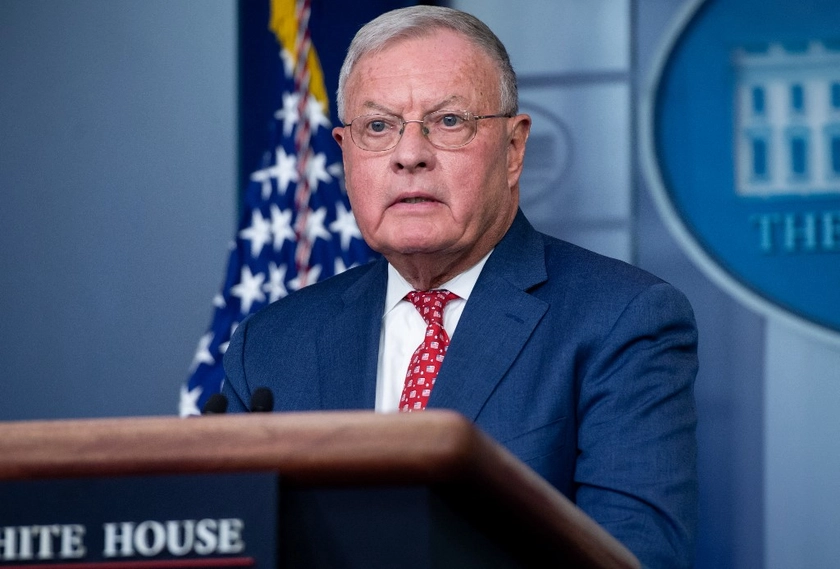The breakaway region of Transnistria has said its authorities have asked Russia to increase the number of its “peacekeepers” in the region.
“Peacekeepers are the main security factor on the [banks of the] Dniester,” and they present “the main defense” against attacks by Ukraine and Moldova, the head of the breakaway region’s representative office in Moscow Leonid Manakov told Russia’s RIA news agency on May 8.
JOIN US ON TELEGRAM
Follow our coverage of the war on the @Kyivpost_official.
“As long as Russia’s peacekeeping mission continues, Moldova is constrained in any military plans and preparations against Transnistria,” he added.
The contingent of Russian peacekeepers, which was established immediately after the Transnistrian conflict of 1990 - 1992, consisted of six motorized rifle battalions. Moscow decided, in 1995, to reduce its manpower to two battalions, which consists of 450 Russian military personnel. A total of 3,100 Russian, Moldovan, and Transnistrian personnel make up the staff of the Joint Control Commission (JCC), formed to oversee the peace.
Manakov claimed that the deteriorating security situation on the border with Ukraine justified an increase of the Russian contingent.
“There is such an option, and it is justified from the point of view of worsening security risks, including the terrorist threat, and at the same time, it is legally justified by the documents adopted as part of the activities of the JCC.”

Senior Ukraine-US Officials Rumored to Hold Talks in Saudi Arabia Tuesday
The Bureau of Reintegration of Moldova, commenting on Manakov’s request, emphasized that it is “the parties who signed the Agreement of July 21, 1992, not those who have nothing to do with it, who can talk about the peacekeeping force mechanism.”
Last week, according to Ukrinform, Ukrainian Foreign Minister Dmytro Kuleba announced that Kyiv will not take any action against the unrecognized Transnistria, even though the region poses a risk. He emphasized that Transnistria is a threat to Ukraine, and that “this forces us to keep forces on this part of the border for potential deterrence and control of the situation.”
However, Kyiv respects Moldova’s sovereignty and its decision to reintegrate Transnistria, Kuleba emphasized.
Transnistria is an unrecognized breakaway region, which is internationally recognized as part of Moldova but has been controlled by pro-Russian separatists since a two-year conflict in 1990-1992.
A cease-fire agreement was signed in July 1992 between Chisinau and Moscow following the conflict, which installed a peacekeeping force in the region made up of Russian, Moldovan, and Transnistrian forces tasked with observing the cease-fire and other security arrangements.
Since then, it has become a cornerstone in Russia’s strategy of maintaining frozen or simmering conflicts in nearby countries that might potentially join NATO, such as Georgia and Ukraine.
The Moldovan authorities have repeatedly called on Russia to withdraw troops from the territory of Transnistria. “We have demanded and demand the elimination of ammunition from the left bank of the Dniester and continue to advocate for a peaceful resolution of this conflict,” said President Maya Sandu.
The Moldovan Foreign Ministry called the presence of Russian peacekeepers in the region a “factor of instability.” In February, Prime Minister Dorin Recean announced the need to demilitarize the region. In response, the Kremlin recommended Chisinau to speak more judiciously on this topic.
In early May, Vitaly Ignatiev, the head of Transnistria’s external affairs department, said that Russian peacekeepers have been brilliantly performing their tasks in Transnistria for 30 years and should remain in the republic, even if the Moldovan authorities want to withdraw from the agreement that initiated the creation of the mission.
Kyiv would beg to differ. Ukrainian State Border Service spokesman Andriy Demchenko said in March that the authorities were tightening controls on the border with the Transnistrian region, where the Ukrainian army had begun erecting a network of fortifications, RBC news agency reported.
“We understand the perfidy of the enemy, we understand that there can be provocations at any moment. We must be ready to act in all directions, including the Transnistrian segment,” Demchenko said.
You can also highlight the text and press Ctrl + Enter











